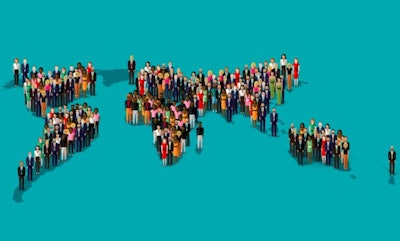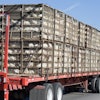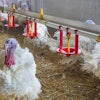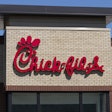
The planet is getting warmer and more crowded. The chicken industry will likely play an outsized role in feeding this world of the future, but plant-based foods could represent a significant part of the diet, too.
During my annual visit to the International Production & Processing Expo (IPPE), I heard Dr. David Hughes, an emeritus professor of food marketing at Imperial College London, speak about the global big picture concerning people, the planet and food.
It was not the most inspirational speech I’ve ever heard.
The specter of climate change
By 2050, the global population will likely reach 10 billion. Most of that population increase will be in Africa and Asia. In that same time period, projected global climate change will negatively affect the agricultural capabilities of much of Africa as well as the Middle East, India, Indochina, Indonesia and the Philippines.
Sea levels will likely rise, too, and – as Hughes said – people won’t just sit and drown. They will move inland from coastal and low-lying areas. If people in Europe, North America and Australia think they are dealing with a migration crisis now, he said, just wait until famine or flooding forces people living in already impoverished nations to migrate.
This is a disturbing, but not new image. Hughes said this issue has been relevant since the days of Thomas Malthus and agriculture always met the challenge. Nevertheless, climate change is pushing the action like never before.
Behavioral shifts
Humanity, especially younger people, is starting to take action to do what they can to prevent a catastrophe.
Hughes said this is relevant from a dietary perspective. In the U.S. and Europe, eating meat is still the norm. However, the frequency of eating meat is declining in Western Europe recently. One key reason, he said, is the association consumers in these countries make between climate change and animal agriculture.
Plant-based foods are becoming an attractive option for their perceived minimal climate impact and better nutrition. International food and beverage and packaged food companies, which are losing out this century as consumers turn their backs on the establishment in favor of startups, are pouring time and money into plant-based foods and plant-based meat replacements.
Investment flows into plant-based foods
Already, Hughes said, there is tremendous buzz about a plant-based burger in every market where it’s been introduced. In Germany and Canada, McDonalds is marketing a plant-based burger made by Nestle. In the U.S., Burger King is marketing a plant-based burger made by Impossible Foods. Meat-free chicken is on the menu, too. A chicken substitute made from Quorn and Beyond Meat was marketed by KFC in the U.K. and the U.S., respectively. Subway, Pizza Hut and Dunkin’ Donuts are all testing out plant-based and vegan meat substitutes, too.
All told, he said, more than 20 major meat companies or food companies – including Cargill, Tyson Foods, Smithfield Foods, Unilever, Hormel, Perdue Farms, Nestle and Kellogg’s – are invested in meat alternative or meat-free products.
Where does chicken fit in?
Chicken plays an interesting role in the global food picture. Decades ago, chicken was not the global king of meats that it now is. It was able to overtake competing proteins due to its affordability, taste, nutritional value, convenience and relative ease of production.
Hughes wondered if plant-based foods can, due to climate and societal pressures, reproduce chicken’s success by beating it in the same categories. Only time will tell. He quoted Swiss banking giant UBS, who said in July 2019 that the plant-based food category will increase in value by about $85 billion by the end of the 2020s.
How chicken can win the future
Chicken of course is a sustainability success story. In terms of turning natural resources into protein, there’s no more efficient operation than chicken. I firmly believe the chicken industry needs to lean in on sustainability immediately.
While the shopper isn’t beating down the door asking for sustainable products just yet, Hughes cited research from New York University showing that products marketed as sustainable made up 50.1% of the dollar share of market growth between 2013 and 2018. In 2018, sustainably marketed products accounted for 16.6% of total market share in terms of dollars spent.
Chicken is sustainable. If the dire predictions about the planet and population prove true, that will be an increasingly valuable selling point. The industry needs to continue its ongoing, successful mission to produce more protein using less resources.
In the 2020s, chicken needs to market itself as a sustainable protein source. Chicken is king now, but there is plenty of competition for the throne. Plant-based foods may yet be a worthy rival by the middle of this century.
For now, meat is still central to the diet of the world. The poultry industry should continue working to make sure that meat is chicken.


















